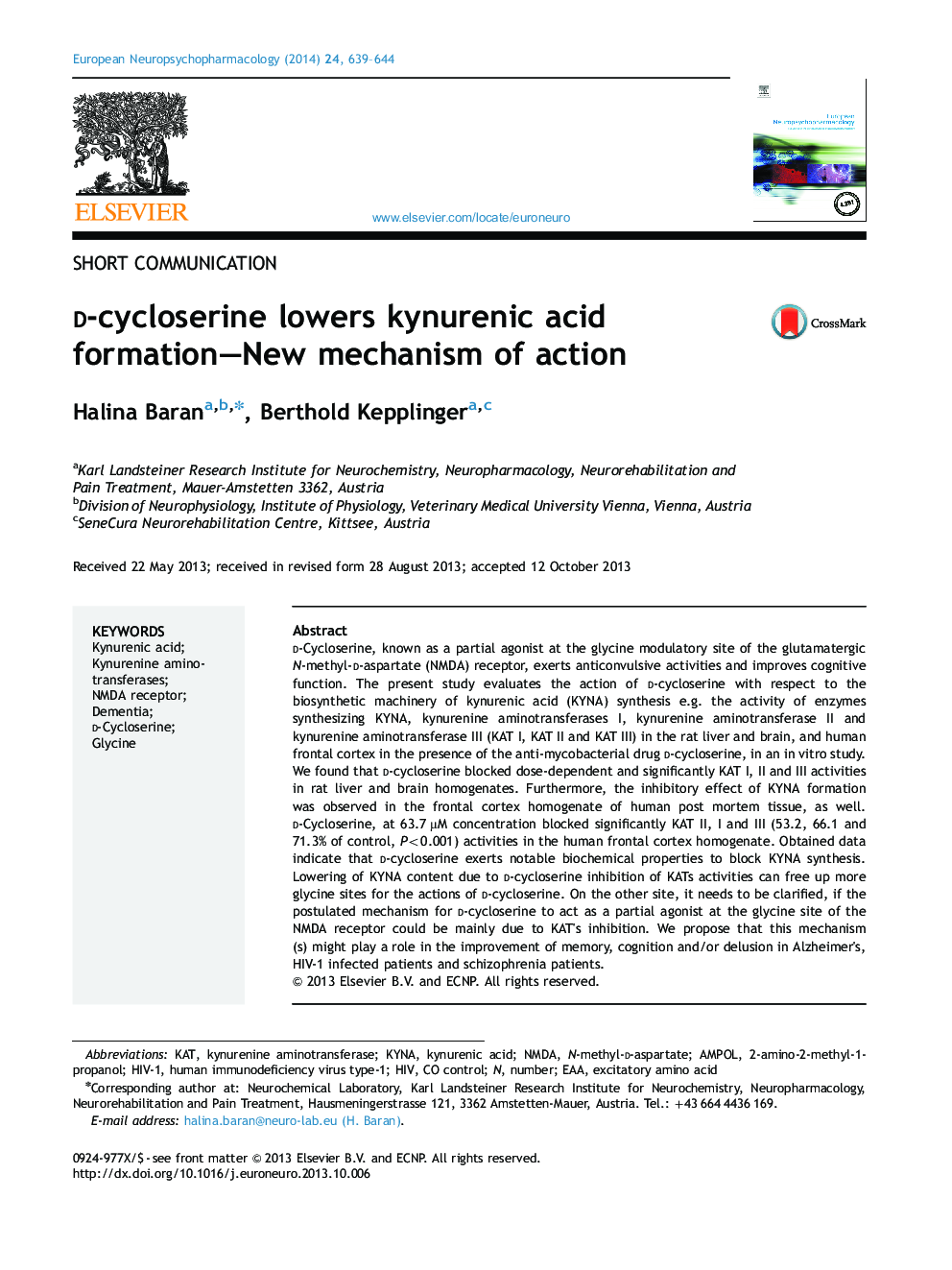| Article ID | Journal | Published Year | Pages | File Type |
|---|---|---|---|---|
| 10299262 | European Neuropsychopharmacology | 2014 | 6 Pages |
Abstract
d-Cycloserine, known as a partial agonist at the glycine modulatory site of the glutamatergic N-methyl-d-aspartate (NMDA) receptor, exerts anticonvulsive activities and improves cognitive function. The present study evaluates the action of d-cycloserine with respect to the biosynthetic machinery of kynurenic acid (KYNA) synthesis e.g. the activity of enzymes synthesizing KYNA, kynurenine aminotransferases I, kynurenine aminotransferase II and kynurenine aminotransferase III (KAT I, KAT II and KAT III) in the rat liver and brain, and human frontal cortex in the presence of the anti-mycobacterial drug d-cycloserine, in an in vitro study. We found that d-cycloserine blocked dose-dependent and significantly KAT I, II and III activities in rat liver and brain homogenates. Furthermore, the inhibitory effect of KYNA formation was observed in the frontal cortex homogenate of human post mortem tissue, as well. d-Cycloserine, at 63.7 µM concentration blocked significantly KAT II, I and III (53.2, 66.1 and 71.3% of control, P<0.001) activities in the human frontal cortex homogenate. Obtained data indicate that d-cycloserine exerts notable biochemical properties to block KYNA synthesis. Lowering of KYNA content due to d-cycloserine inhibition of KATs activities can free up more glycine sites for the actions of d-cycloserine. On the other site, it needs to be clarified, if the postulated mechanism for d-cycloserine to act as a partial agonist at the glycine site of the NMDA receptor could be mainly due to KAT's inhibition. We propose that this mechanism(s) might play a role in the improvement of memory, cognition and/or delusion in Alzheimer's, HIV-1 infected patients and schizophrenia patients.
Keywords
Related Topics
Life Sciences
Neuroscience
Biological Psychiatry
Authors
Halina Baran, Berthold Kepplinger,
